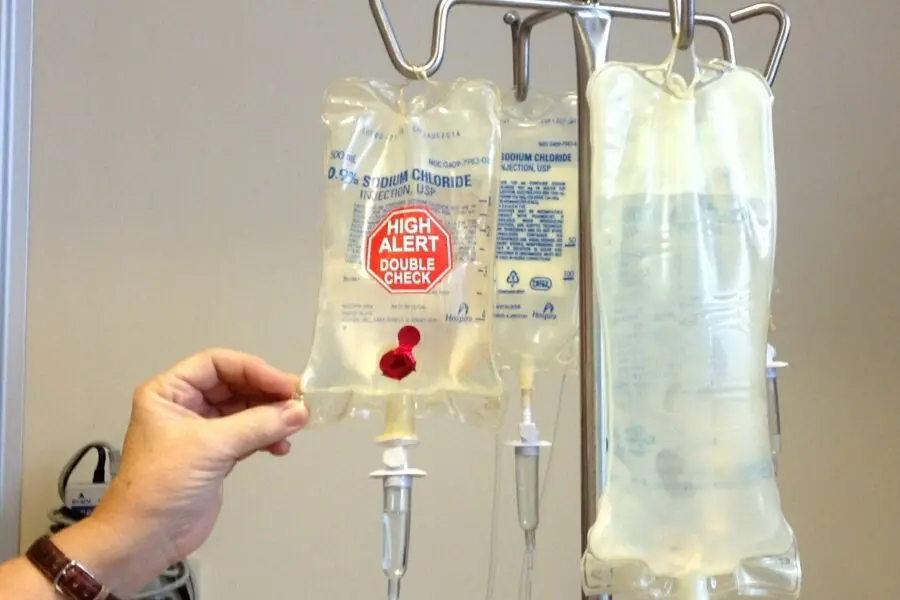- Home
- Medical news & Guidelines
- Anesthesiology
- Cardiology and CTVS
- Critical Care
- Dentistry
- Dermatology
- Diabetes and Endocrinology
- ENT
- Gastroenterology
- Medicine
- Nephrology
- Neurology
- Obstretics-Gynaecology
- Oncology
- Ophthalmology
- Orthopaedics
- Pediatrics-Neonatology
- Psychiatry
- Pulmonology
- Radiology
- Surgery
- Urology
- Laboratory Medicine
- Diet
- Nursing
- Paramedical
- Physiotherapy
- Health news
- Fact Check
- Bone Health Fact Check
- Brain Health Fact Check
- Cancer Related Fact Check
- Child Care Fact Check
- Dental and oral health fact check
- Diabetes and metabolic health fact check
- Diet and Nutrition Fact Check
- Eye and ENT Care Fact Check
- Fitness fact check
- Gut health fact check
- Heart health fact check
- Kidney health fact check
- Medical education fact check
- Men's health fact check
- Respiratory fact check
- Skin and hair care fact check
- Vaccine and Immunization fact check
- Women's health fact check
- AYUSH
- State News
- Andaman and Nicobar Islands
- Andhra Pradesh
- Arunachal Pradesh
- Assam
- Bihar
- Chandigarh
- Chattisgarh
- Dadra and Nagar Haveli
- Daman and Diu
- Delhi
- Goa
- Gujarat
- Haryana
- Himachal Pradesh
- Jammu & Kashmir
- Jharkhand
- Karnataka
- Kerala
- Ladakh
- Lakshadweep
- Madhya Pradesh
- Maharashtra
- Manipur
- Meghalaya
- Mizoram
- Nagaland
- Odisha
- Puducherry
- Punjab
- Rajasthan
- Sikkim
- Tamil Nadu
- Telangana
- Tripura
- Uttar Pradesh
- Uttrakhand
- West Bengal
- Medical Education
- Industry
Neoadjuvant chemotherapy in bladder cancer treated with open radical cystectomy improved prognosis: Study

A new study published in the International Journal of Urology showed that patients with muscle-invasive bladder cancer (MIBC) undergoing radical cystectomy worked better with neoadjuvant chemotherapy, as evidenced by prolonged progression-free survival and cancer-specific survival when compared to those who did not receive chemotherapy.
Microscopic dissemination to the lymph nodes is discovered in 20 to 25 out of 100 MIBC patients who have had radical cystectomy, or bladder removal surgery. Therefore, this is probably the situation for patients with MIBC who get extreme radiation therapy. Therefore, treatment choices for patients with MIBC focus on both the bladder cancer and any potential undetected lymph node metastasis.
Before radical radiation or surgery, neoadjuvant chemotherapy is administered. Neoadjuvant chemotherapy is thought to work by eliminating micro-metastatic illness that has not yet been identified. This study sought to assess the effectiveness of neoadjuvant chemotherapy for muscle-invasive bladder cancer in actual clinical practice in Japan due to ambiguous evidence of improved survival.
To choose patients with a diagnosis of pure urothelial carcinoma, this study first took patients who had open radical cystectomies at Kanazawa University Hospital between July 2000 and May 2021 out of the medical records. Based on whether neoadjuvant chemotherapy was administered or not, progression-free survival and cancer-specific survival were compared. We also looked at prognostic variables associated with survival specific to cancer.
A total of 91 of the 107 patients who had open radical cystectomies had pure urothelial cancer. The presence and absence of neoadjuvant chemotherapy significantly affected both cancer-specific and progression-free survival (median cancer-specific survival: not reached vs. 66.6 months, p = 0.0017, and median progression-free survival: not reached vs. 21.4 months, p = 0.0167, respectively).
5 independent adverse prognostic variables were identified by multivariate analysis, which were, high neutrophil-to-lymphocyte ratio, high C-reactive protein level, pN+, ≥ pT2, and age > 70 years. The patients were split into 3 risk groups with notably differing cancer-specific survival rates based on the number of independent unfavorable prognostic markers.
Overall, in actual clinical practice, individuals with muscle-invasive bladder cancer treated with open radical cystectomy had better prognoses after receiving neoadjuvant chemotherapy. High inflammatory markers, severe illness, and advanced age were risk factors for a poor outcome.
Source:
Naito, R., Izumi, K., Takimoto, A., Nakagawa, R., Kano, H., Makino, T., Iwamoto, H., Yaegashi, H., Kawaguchi, S., Shigehara, K., Nohara, T., & Mizokami, A. (2025). Does neoadjuvant chemotherapy followed by radical cystectomy improve the survival of muscle-invasive bladder cancer in real-world clinical practice? International Journal of Urology: Official Journal of the Japanese Urological Association. https://doi.org/10.1111/iju.70064
Neuroscience Masters graduate
Jacinthlyn Sylvia, a Neuroscience Master's graduate from Chennai has worked extensively in deciphering the neurobiology of cognition and motor control in aging. She also has spread-out exposure to Neurosurgery from her Bachelor’s. She is currently involved in active Neuro-Oncology research. She is an upcoming neuroscientist with a fiery passion for writing. Her news cover at Medical Dialogues feature recent discoveries and updates from the healthcare and biomedical research fields. She can be reached at editorial@medicaldialogues.in
Dr Kamal Kant Kohli-MBBS, DTCD- a chest specialist with more than 30 years of practice and a flair for writing clinical articles, Dr Kamal Kant Kohli joined Medical Dialogues as a Chief Editor of Medical News. Besides writing articles, as an editor, he proofreads and verifies all the medical content published on Medical Dialogues including those coming from journals, studies,medical conferences,guidelines etc. Email: drkohli@medicaldialogues.in. Contact no. 011-43720751


